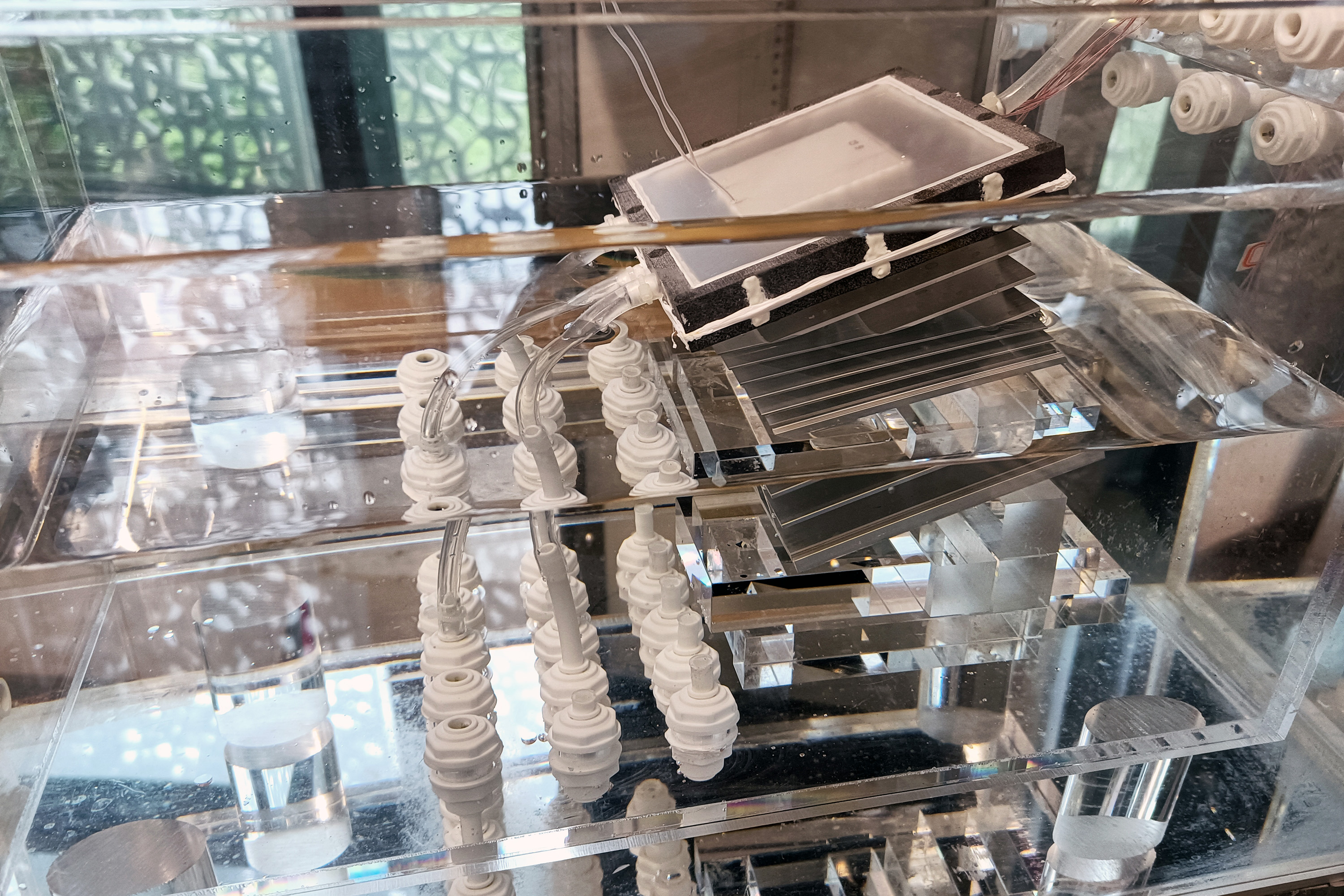Desalination system could produce freshwater that is cheaper than tap water::A new solar desalination system takes in saltwater and heats it with natural sunlight. The system flushes out accumulated salt, so replacement parts aren’t needed often, meaning the system could potentially produce drinking water that is cheaper than tap water.



We get one of these reports every few years, and I’ll believe it when I see it. The problem with desalination is it just creates yet another ecological disaster scenario. The waste byproducts are toxic, and as Israel has already proven multiple times, prone to cause issues with the balance of ecosystems surrounding intake ports.
Desalination won’t touch a percentage of a percentage of a percentage of the brine produced by the sun simply by evaporation.
Our problem isn’t the byproduct, it’s how to return it to the sea in a distributed way rather than out a single pipe. That’s an engineering problem, not an ethical or environmental one.
Dress it up or call it whatever you want, but there have been horrible problems with it in the past, and nothing has been done to prevent them happening in the future. A problem is a problem regardless of what type of problem you want to categorize it is.
Let me put it in a way you might understand:
Ethical problem - Potentially no correct solution, tradeoffs likely.
Engineering problem - Smart people do maths until problem is solved.
We care but guess who doesn’t? Corporate Amer$ca
Which byproducts, Isn’t salt water just water + salt?
Or do you refer to the machine?
You can Google this, but the specifics might be hard to get at without specific terminology. Apologies if this is long.
Salt water is not just salt and water. It’s a lot of dissolved things at a low concentration, so when you purify it, you can remove the water, but are left with everything else to deal with.
The byproduct is called “brine”, and it’s basically a highly saline slush with all the heavy metals and now microplastics that humans have fucked the oceans with.
You can’t even really turn it into anything else in most cases (locations vary on purity) because after you remove all the water you have things like mercury, lithium, chlorine…whatever other minerals the locale has leeched into the water by natural process or dumping. Due to the processing it’s all HOT and volatile, so you cant just let it sit there, you have to put it some place.
You can’t just dump it back into the ocean because then you’re making the ocean TOO salty and killing everything. You can’t put it into a landfill because then you’re just building a toxic waste dump. You have to essentially do what we do with nuclear waste and bury it in a vault because there is no good use for it (maybe this can change in the future), and the chances it will just leech out into the world and create an ecological disaster is insanely high.
For every gallon of ocean water you desalinate, you have something like an ounce of this leftover brine. Do that a few million gallons a day, and you have quite a lot to deal with.
This isn’t even taking into account all the methane producing living things you’re killing by filtering out before you even get to the actual desalination steps, which is a whole other thing.
Tldr: it’s not a good way to get water.
Much better explanation than my off the cuff attempt, great added detail.
I only saw yours after mine, but very succinct.
The verdict on brine impact is not out yet AFAIK. It impact species differently.
Study of brine discharge from desalination plant finds good news and bad news (2019)
They are developing technologies to deal with brine like solar powered brine crystallization or mixing it with sea water before reintroducing it. More are discussed quickly in this review: Characteristics of Desalination Brine and Its Impacts on Marine Chemistry and Health, With Emphasis on the Persian/Arabian Gulf: A Review. That one is actually good and very readable to the layman (i.e me):
The conclusion puts it well
Salt brine is highly corrosive to anything in contact with it so it is difficult to move, and in high concentrations wreaks absolute havoc in surrounding ecosystems. There’s a reason the phrase ‘salting the earth’ doesn’t have a good connotation. Desalination on a small scale might not seem like an issue but when dealing with the waste at scale becomes a bigger issue than even the energy cost to perform.
This. I’m curious too, IIRC the byproduct of reverse osmosis is just salt.
The byproduct is a sort of like salt water, but a lot more concentrated. It’s mostly NaCl, but there’s also various other anions and cations such as Al, Ca, Mg, K, SO4 etc. Those metals came from the ocean, so you might be inclined to think that you can dump them back into the ocean. The problem comes when you dump a lot of that stuff and you get very high concentrations locally. When the concentration of those compounds is within the normal range, sea life can handle it. Once it’s above the limit, you can expect things to struggle or die. Eventually, it will get diluted in the ocean, but before that the concentrations will be high enough to cause damage to most living things.